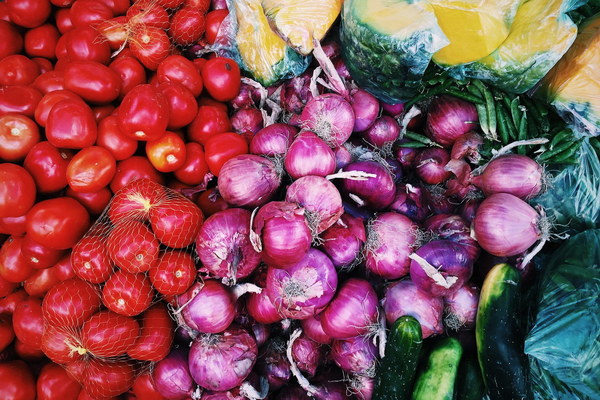The Art of Seasonal tonifying Nourish Your Body with Nature's Rhythms
In the ever-evolving world of wellness, the practice of seasonal tonifying has gained significant traction. This ancient method, deeply rooted in traditional Chinese medicine (TCM), advocates for aligning our diet and lifestyle with the changing seasons to maintain health and vitality. The premise is simple yet profound: by consuming specific foods and adopting corresponding lifestyle habits, we can support our body's internal balance and enhance overall well-being. Let's delve into the essence of seasonal tonifying and discover how to incorporate this wisdom into our daily lives.
Spring: Awakening and Renewal
Spring is the time of year when nature awakens from its winter slumber. The air is fresh, the sun is warm, and everything seems to burst into life. In TCM, spring is associated with the liver and gallbladder, organs that govern emotions, vision, and the smooth flow of energy (Qi). To support these organs, it is beneficial to consume foods that promote liver health, such as leafy greens, bitter herbs, and sweet fruits.
Leafy greens, such as spinach and kale, are rich in vitamins A, C, and K, which are essential for liver function and eye health. Bitter herbs like dandelion and chicory can help to stimulate bile production, which aids in digestion and the elimination of toxins. Sweet fruits, such as strawberries and blueberries, can boost energy levels and support the liver's natural detoxifying processes.
In addition to adjusting our diet, it is crucial to engage in activities that promote emotional balance and energy flow. Spring is an excellent time to try yoga, meditation, or outdoor activities that help us connect with nature and release any pent-up emotions from winter.
Summer: Balancing Heat and Energy
As the sun reaches its zenith and days become longer, summer is characterized by its hot and humid climate. In TCM, summer is associated with the heart and small intestine, organs that govern blood circulation, digestion, and the mind. To maintain balance during this season, it is essential to consume cooling foods and beverages that help to counteract the heat.
Fruits and vegetables such as watermelon, cucumbers, and mint are excellent choices, as they contain high water content and are naturally cooling. Additionally, foods rich in potassium, such as bananas and sweet potatoes, can help to regulate the body's fluid balance and prevent dehydration.
It is also beneficial to engage in activities that promote relaxation and calm the mind. Summer is the perfect time to practice mindfulness, meditate, or simply enjoy the beauty of nature. By doing so, we can maintain a harmonious balance between our body and mind, ensuring we remain healthy and resilient throughout the season.
Autumn: Harvest and Nourishment
As summer gives way to autumn, the world around us begins to transition from growth to rest. In TCM, autumn is associated with the lungs and large intestine, organs that govern the immune system, respiratory health, and the elimination of waste. To support these organs, it is important to consume foods that are rich in nutrients and help to strengthen the immune system.
Foods such as apples, pears, and root vegetables like carrots and beets are perfect for autumn. These foods are high in vitamins, minerals, and antioxidants that can boost the immune system and protect against colds and flu. Nuts and seeds, such as almonds and pumpkin seeds, are also excellent choices, as they contain healthy fats and nutrients that support respiratory health.
Autumn is also the ideal season to practice self-care and cultivate a sense of gratitude. Engaging in activities like journaling, crafting, or simply spending time with loved ones can help to promote emotional well-being and ensure a smooth transition into winter.
Winter: Conservation and Rest
Winter is the time of year when nature conserves its energy and prepares for the upcoming spring. In TCM, winter is associated with the kidneys and urinary bladder, organs that govern bone health, reproductive function, and the storage of vital energy (Jing). To support these organs, it is important to consume warm, nourishing foods that help to conserve and replenish our body's energy.
Root vegetables, such as potatoes, sweet potatoes, and turnips, are excellent choices, as they provide warmth and are rich in essential nutrients. Foods that are high in omega-3 fatty acids, such as fatty fish and flaxseeds, can also help to strengthen the kidneys and support overall health.

In winter, it is crucial to prioritize rest and self-care. Engaging in activities that promote relaxation and sleep, such as reading, taking warm baths, or practicing gentle yoga, can help to conserve energy and maintain balance throughout the season.
Conclusion
Seasonal tonifying is an ancient practice that holds profound wisdom for modern times. By aligning our diet and lifestyle with the changing seasons, we can support our body's natural rhythms and enhance our overall well-being. By embracing the principles of seasonal tonifying, we can live









